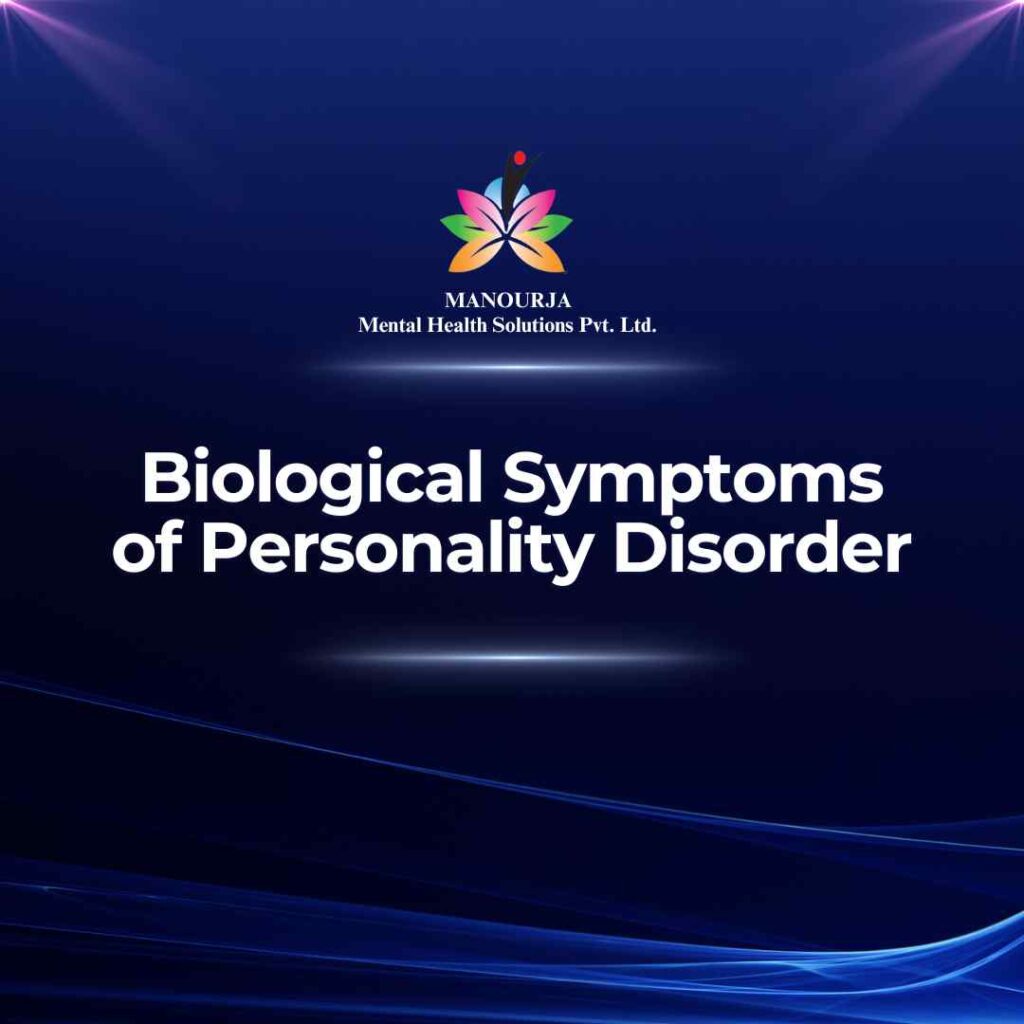Biological Symptoms of Personality Disorder

Personality disorders are primarily defined by patterns of behavior, cognition, and emotional response that are maladaptive. While the core symptoms and diagnostic criteria are psychological in nature, research has identified several biological factors and symptoms associated with personality disorders. These biological aspects can influence the development and expression of personality disorders, though they do not constitute the primary symptoms themselves. Here are some of the key biological factors and symptoms associated with personality disorders:
Genetic Factors
There is evidence to suggest that genetic predispositions play a role in personality disorders. Studies involving twins and families indicate that genetic factors can contribute to the development of disorders like borderline personality disorder (BPD) and antisocial personality disorder (APD). These genetic links suggest that certain inherited traits or vulnerabilities might affect brain development and functioning, influencing personality traits.
Neurotransmitter Imbalances
Neurotransmitters are chemicals in the brain that affect mood, cognition, and behavior. Imbalances or dysfunctions in neurotransmitters such as serotonin, dopamine, and norepinephrine have been associated with personality disorders. For example, serotonin irregularities have been linked to impulsivity and aggression, traits commonly observed in borderline and antisocial personality disorders.
Brain Structure and Functioning
Imaging studies have shown differences in the brain structure and functioning of individuals with certain personality disorders compared to those without such disorders. For instance:
- Borderline Personality Disorder: Individuals often have abnormalities in brain areas responsible for emotion regulation, such as the amygdala and prefrontal cortex.
- Antisocial Personality Disorder: Research has noted reduced gray matter in the frontal lobes, which are involved in regulating behavior and inhibiting impulses.
- Schizotypal Personality Disorder: This disorder has been associated with abnormalities in regions of the brain involved in sensory processing and perception.
Autonomic Nervous System Reactivity
The autonomic nervous system (ANS), which regulates physiological responses such as heart rate and stress responses, may function differently in people with certain personality disorders. For example, individuals with borderline personality disorder might exhibit heightened sensitivity to stress and slower recovery from high arousal states, indicating atypical ANS reactivity.
Hormonal Influence
Hormonal imbalances, including those involving stress hormones like cortisol, have been studied in relation to personality disorders. Dysregulation in the hypothalamic-pituitary-adrenal (HPA) axis, which governs stress responses, may contribute to the emotional dysregulation seen in some personality disorders.
It’s important to note that these biological symptoms and factors do not cause personality disorders on their own but are thought to interact with environmental factors (such as early life experiences) to influence the development of these disorders. Additionally, not all individuals with a personality disorder will show these biological symptoms, underscoring the complex interplay of genetics, biology, and environment in the manifestation of personality disorders.
At MANOURJA, we believe in the transformative power of counseling. Our experienced therapists offer a safe and supportive space where you can explore your thoughts, emotions, and challenges. Through personalized counselling sessions, we’ll work together to develop coping strategies, build resilience, and achieve lasting positive change. Discover the path to a healthier, happier you with MANOURJA counselling services.
MANOURJA Rehabilitation Services
At MANOURJA, we’re dedicated to helping you in rebuild your life, after difficult times. Our rehabilitation services focus on understanding what you need to move forward, whether you’re recovering from addiction, trauma, or any psychological – social challenges. We create personalized plans, that are all about helping you, regain your strength and find hope again. With a caring team by your side, you’ll have the support to make real progress and take steps toward a brighter, healthier future.
